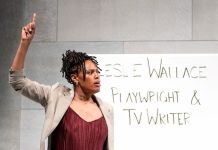When Fiddler on the Roof opens at the National Theatre next week, the village of Anatevka—the fictional setting for one of the most successful Broadway musicals in history—will not be the same sun-filled place it appeared to be in 1964.
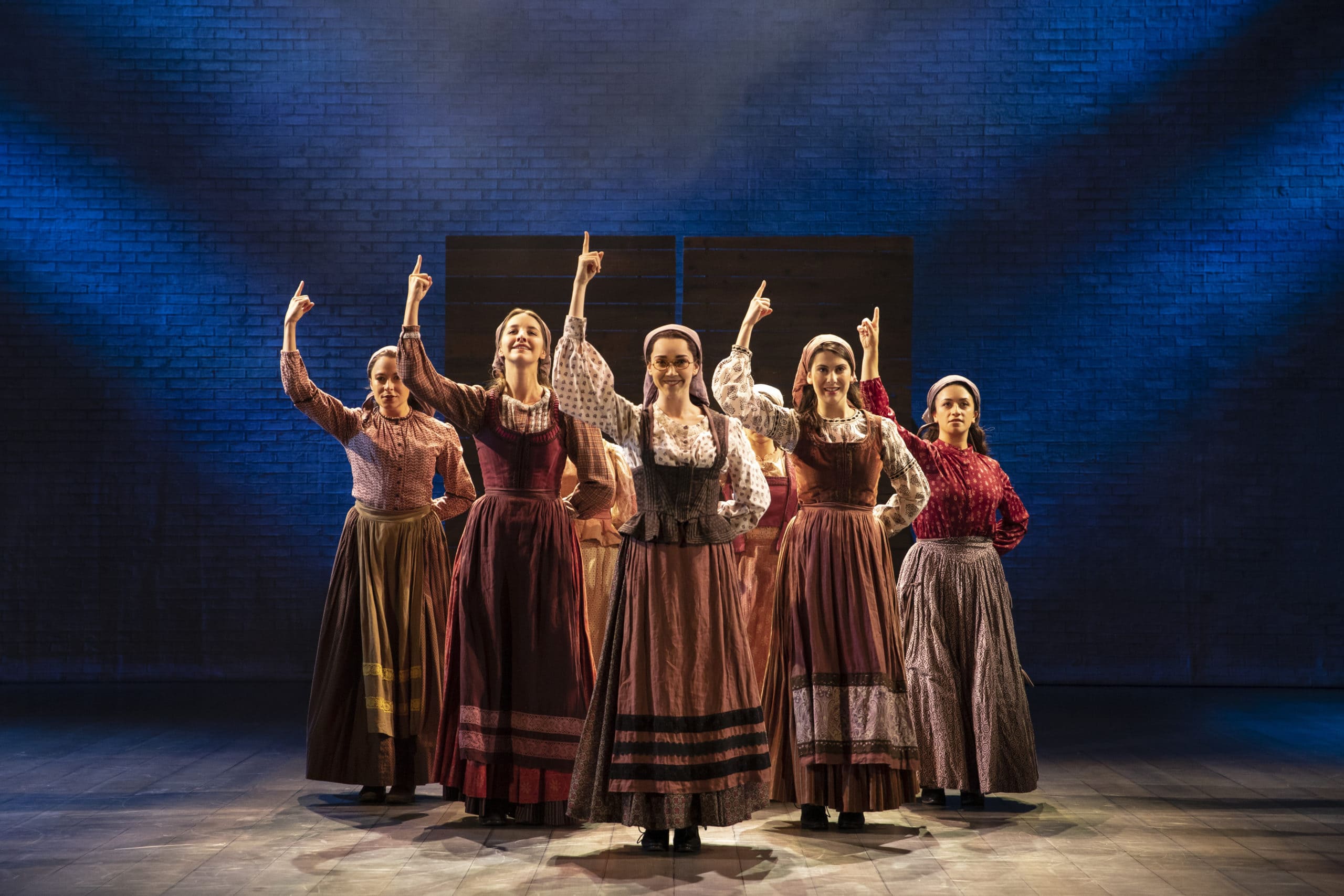
That’s the year the original production—depicting Jewish life in Tsarist Russia—first began to dazzle audiences. Fiddler on the Roof, which racked up nine Tony awards, has since had many revivals.
This one, however, casts a different light on the events of 1905, the year in which Fiddler is set. Based on the critically acclaimed 2015 Broadway revival, directed by Bartlett Sher, this Fiddler—now in the second year of its North American tour—is not the whitewashed version that earlier generations saw.
Yes, Tevye the milkman is still arguing with God. And yes, Golde, his wife, still complains. Their oldest daughters—Tzeitel, who wants to marry a tailor; Hodel, who loves a revolutionary, and Chava, who chooses a gentile—still resist the machinations of Yente the matchmaker. (She’s the one who thinks the butcher, Lazar Wolfe, would be a good catch.)
The fiddler himself, a character drawn from a painting by Marc Chagall, is still perched as precariously on the roof as the Jews who try to go on living in a country rife with anti-Semitism.
The music—created by Pulitzer Prize winners Sheldon Harnick and Jerry Bock—is still glorious, while the book—adapted by Joseph Stein from the stories by Sholem Aleichem—still offers plenty of Yiddish humor despite the shadows on the wall.
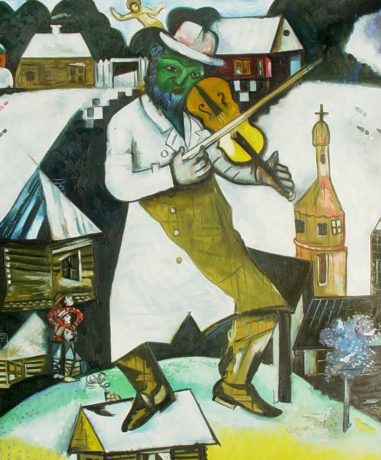
But the shadows are on the wall. And this Fiddler, now making its DC debut as the eighth show in this year’s Broadway at the National series, is a reminder of what’s to come.
Having read so much about the 2015 production, which enjoyed a sold-out run and rave reviews on Broadway, I was eager to learn more. Luckily, I had a chance to talk to Ruthy Froch, the 26-year-old actor who plays Hodel, during one of the show’s Florida stops.
Asked what made this Fiddler so different, Froch—speaking by phone from West Palm Beach—credited the emotional depth of Sher’s direction and the intense vitality of the choreography.
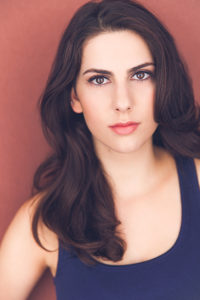
“This Fiddler is rooted in Orthodox life,” she said, adding that she herself had grown up in an observant home, and found the ritual scenes—especially the Sabbath dinner—more familiar, and more grounded in the religion, than previous productions.
But it’s the choreography, according to Froch, that brings the show alive. For this production, the director sought out Hofesh Shechter, a 44-year-old Israeli dancer whose company is now based in London, to re-imagine the 55-year-old original.
“All the dances pay homage to Jerome Robbins, but there is more passion and earthiness than before,” Froch said. In fact, several critics have pointed out that the dancing in this Fiddler is more like that of West Side Story, which is also a Robbins creation, though produced earlier.
Another welcome difference is the orchestra, an 11-piece ensemble led by Ted Sperling, who injects a Klezmer feeling into some of the classical songs.
Landing the role of Hodel—whose songs are among the most moving in the show—was no accident, Froch told me.
“Hodel was the only role I auditioned for,” she said, explaining that the character seemed more interesting than the other sisters.
“That’s because Hodel is a feminist,” she added. “She’s a woman’s hero. For example, while Tzeitel asks her father for permission to marry for love, Hodel tells her father she’s doing it. She’s a role model.”
Hodel is also the daughter most like her father. They have the same passion for ideas and the same sense of humor. And it’s Tevye who arranges for Perchik to become Hodel’s tutor.
“Perchik introduces Hodel to a whole new way of thinking. He helps her to find her voice. And he becomes her soul mate.” When she decides to join Perchik in exile—venturing alone to Siberia—Tevye accepts that decision.
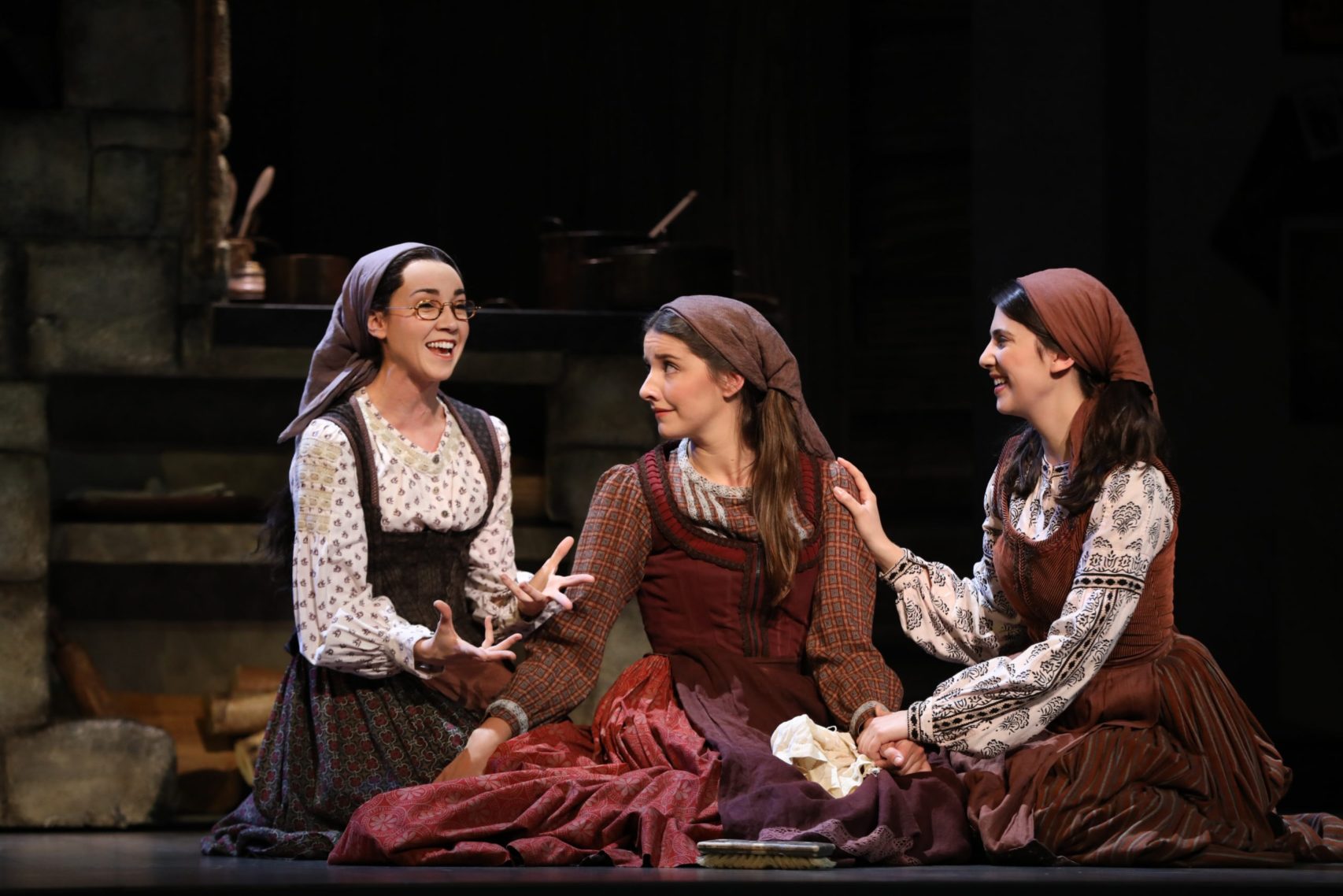
I asked Froch what she thinks will happen to Hodel, assuming that she and Perchik survive the grim life of exile and are released when the revolution comes.
“They might leave for America or the Far East,” Froch replied. “Or they might stay in Europe”—in Warsaw, Paris and or even Vienna—“and then be destroyed in the Holocaust.”
It’s a sobering thought. The anti-Semitism that looms over Hodel and her family, and that drives them away, “far from the home they loved,” will ultimately seek to eliminate them all.
That hint is not lost on Froch, who grew up in Calabasas, California. One of her grandfathers is a Holocaust survivor.
Although she’s appeared in some 400 performances of Fiddler to date, the actor—who is a graduate of NYU’s Tisch School of the Arts—still experiences what she calls a ‘wow’ moment roughly once a week.
“It happens whenever I discover something new in the role, or when I lock in with one of my stage partners and we share an amazing scene,” she wrote in an e-mail after our talk. “It also happens when I look out into the audience and this wave of magic and gratitude hits me.”
And it’s bound to happen here in Washington, DC when the curtain rises on a Fiddler that’s been modified for the 21st century.
Running Time: Approximately three hours, including one intermission.
Fiddler on the Roof opens December 10 and plays through December 15, 2019, at the National Theatre, 1321 Pennsylvania Avenue NW, Washington, DC. For tickets, visit the box office, call 1-800-514-3849 or purchase them online.




